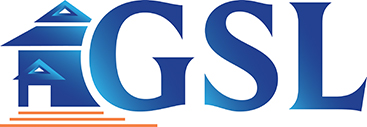GOUVERNEUR BANCORP, INC.
CODE OF ETHICS
FOR
EXECUTIVE OFFICERS AND
TREASURER
This Code of Ethics for Executive Officers and Treasurer has been adopted by Gouverneur Bancorp, Inc. and its subsidiaries Gouverneur Savings and Loan Association and GS&L Municipal Bank (referred to collectively as the "Company") to promote (i) honest and ethical conduct; (ii) prompt, accurate and proper disclosure of financial information in the Company's periodic reports; (iii) compliance with applicable laws, rules, and regulations by the Company's senior officers who have financial responsibilities; and (iv) the prompt internal reporting of code violations.
An Executive Officer is defined as the President or Vice President of the Association.
Principles and Practices
Executive Officers and Treasurer, and all others performing similar functions, shall adhere to and advocate the following principles governing their professional and ethical conduct in the fulfillment of their duties and responsibilities:
(1) Maintain high standards of honest and ethical conduct and avoid any actual or apparent conflict of interest between personal and professional relationships.
(2) Report to the Audit Committee of the Board of Directors any conflict of interest that may arise and any material transaction or relationship that reasonably could be expected to give rise to a conflict. A conflict of interest could arise through, but not limited to, the acceptance of gifts, payment, or services from those seeking to do business with the Company, or the placement of business with a firm owned or controlled by an officer, director or employee of the Company or his/her immediate family.
(3) Provide, or cause to be provided, full, fair, accurate, timely, and understandable disclosure in reports and documents that the Company files with or submits to the Securities and Exchange Commission, other applicable regulatory agencies and in other public communications.
(4) Respect the confidentiality of information acquired in the course of the performance of his or her responsibilities except when authorized or
otherwise legally obligated to disclose, and refrain from using such confidential information acquired in the course of the performance of his or her responsibilities for personal economic gain or advantage.
(5) Comply with laws of federal, state and local governments applicable to the Company, and the rules and regulations of private and public regulatory agencies having jurisdiction over the Company.
(6) Proactively promote ethical behavior among subordinates or peers.
(7) Use corporate assets and resources employed or entrusted to him or her in a responsible manner. Do not use corporate information, corporate assets, corporate opportunities or one’s position with the Company for personal economic gain or advantage.
(8) Refrain from competing directly or indirectly with the Company.
(9) Promptly report violations of this Code to the Audit Committee.
Duties of Officers
As fiduciaries, financial institution officers are obliged to act in the best interests of the institution, free of self-dealing or conflicts of interest. Officers of the bank must not use corporate property or assets for their personal pursuits or advantage. Removing confidential material belonging to the bank for personal purposes breaches directors’ and officers’ duties.
Confidentiality and Preservation of Documents
Various federal laws and regulations govern the treatment of information the bank accumulates during the normal course of business and through interaction with regulators. It is the policy of this bank to preserve the integrity of bank documents at all times, and employees should not disclose any information from bank records nor remove any records from bank premises at any time. The following are examples of actions that are prohibited, although this list may not be exhaustive:
• Disclosure of examination reports and other supervisory correspondence. Reports of examination and other supervisory documentation should not be disclosed without the express consent of the federal regulators FDIC.
• Disclosure of suspicious activity reports as they contain information that could be prejudicial or damaging to law enforcement efforts as well as to individuals if made public (12 CFR 1020.320(e))
Record Preservation in the Case of Failure of the Bank
In the unlikely event the bank fails, directors, officers and employees are still bound by this ethics policy. Officers do not have the right to collect bank records for their own personal use in anticipation of or following the failure of the bank.
Former Officers may have a legitimate need to access certain limited confidential bank records in order to prepare for, or defend against, litigation that may arise following the placement of the bank into receivership.
However, an access for this purpose must be arranged formally, after the bank is taken into receivership, and subject to a suitable confidentiality agreement with the receiver, or other acceptable assurance of confidentiality such as a protective order.
Waiver
Any request for a waiver of any provision of this Code must be in writing and addressed to the Audit Committee. Any waiver of this Code will be disclosed promptly by any means approved by the Securities and Exchange Commission.
Compliance and Accountability
Executive Officers and Treasurer, or any others performing similar functions, shall acknowledge and certify annually to the foregoing principles and practices and file a copy of such certification with the Audit Committee of the Board of Directors.
The Audit Committee will assess compliance with this Code, report material violations to the Board of Directors, and recommend to the Board appropriate action. The Audit Committee will report to the Board of Directors at least once each year regarding the general effectiveness of this Code of Ethics, the Company’s controls and reporting procedures and the Company’s business conduct.

